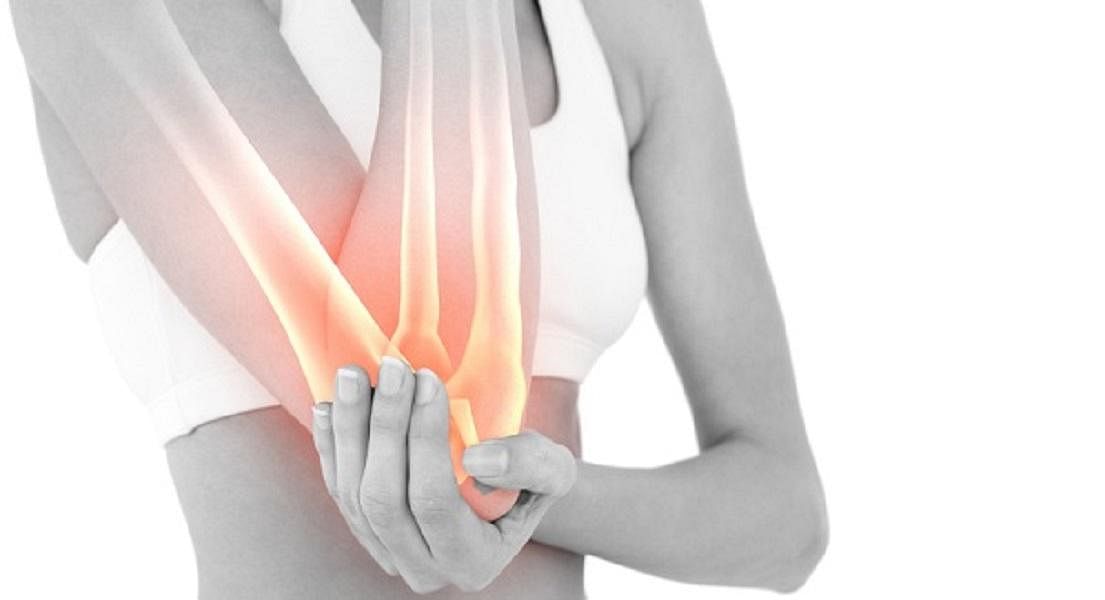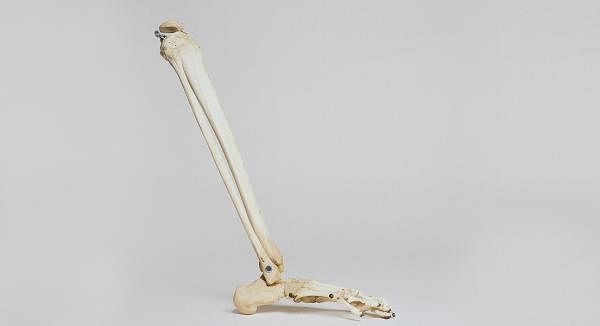Anti-inflammatory Diet Can Protect Your Bones. New Study Findings.
Why you can trust Nutri Advanced Every article on our site is researched thoroughly by our team of highly qualified nutritionists. Find out more about our editorial process.
Osteoporosis is a condition characterised by low bone mass and increased fragility, putting patients at significantly higher risk of fractures, which are major causes of morbidity, especially in older people. It gets much less attention than many other chronic health problems, yet the scary truth is that osteoporosis causes more than 8.9 million fractures annually worldwide – that’s an osteoporotic fracture every 3 seconds. And the disability due to osteoporosis is greater than that caused by cancers (with the exception of lung cancer).
In the UK alone, 1 in 2 women and 1 in 5 men will suffer a fracture over the age of 501. And even more worrying is the news that this picture is set to get worse not better. Using specific nutrients, often found in men's and women's supplements, may help to support bone health when used as part of a daily routine.
Osteoporosis was once considered to be a disease caused by a variety of endocrine, metabolic and mechanical factors, yet emerging evidence now suggests that inflammation may also have a significant role to play in the development of the disease. Understanding of the bone remodelling process has developed significantly in recent years and it is now clear that factors involved in inflammation are closely linked with those critical for bone health. Numerous pro-inflammatory cytokines have been implicated in the regulation of osteoblasts (bone building cells) and osteoclasts (cells that break down bone) and there is now plenty of scientific evidence that underpins the theory that inflammation is a significant contributory factor to the development and progression of osteoporosis2.
Latest study findings
The latest study to investigate this link involved more than 160,000 postmenopausal women and was carried out by a team of researchers from Ohio State’s Center for Clinical and Translational Science. Data was collected from the Women’s Health Initiative (WHI) Observational Study and Clinical Trials and results were published recently in the Journal of Bone and Mineral Research3.
The main finding of the study was a significant link between bone density and dietary inflammatory index score (DII) - a measure of how inflammatory a diet is.
Results showed that women with the least inflammatory diets (low DII score) lost less bone density during a six year follow up period than women with the most inflammatory diets (high DII score). Higher DII scores were also associated with a 50% greater risk of hip fracture in Caucasian women younger than 63.
Especially significant given the size of the study group (more than 160,000 postmenopausal women), these results add further weight to the health benefits of consuming an anti-inflammatory diet. And whilst this type of diet may help to reduce your risk of osteoporosis or even slow disease progression; it’s also beneficial for many other aspects of your health too, since ongoing inflammation has been linked to many common chronic diseases in the Western world such as heart disease, some forms of cancer, diabetes and even Alzheimer’s disease.
Anti-inflammatory diet – Top tips!
1) Diet
• Mediterranean-style diet
• 10 + portions daily of a variety of brightly colored fruits and vegetables (organic where possible)
• Reduce meat and dairy products
• Increase oily fish (no more than 2 portions weekly), nuts & seeds
• Increase plant forms of protein such as beans, chickpeas, lentils, soy, nuts & seeds
• Reduce alcohol, refined sugar, convenience and processed foods
2) Key nutrients
• Vitamin D3 & K2- Vitamin D is essential for the absorption of calcium, whilst vitamin K makes sure this vital mineral is deposited in your bones rather than your arteries. Supplementation is best in the form of D3 (cholecalciferol) & K2 (menaquinone).
• Omega-3 fish oil supplement containing EPA & DHA – it’s crucial to ensure optimal daily intake of omega-3s to support anti-inflammatory pathways in the body.
• High strength daily bone health multivitamin containing calcium, magnesium, boron & zinc
• Curcumin is currently a hot topic for inflammation, with a growing body of research now showing it can deliver significant anti-inflammatory benefits without side effects. Curcumin is the principal curcuminoid found in the widely used spice, turmeric. The curcumin content of turmeric is not high, (somewhere around 3%), so it’s very difficult to reach therapeutic levels simply by using the spice or fresh root in your food. Most of the studies to date have used turmeric extracts containing a high proportion of curcumin, with dosages of upwards of 1g daily.
• Rosemary extract – The popular culinary herb rosemary has a long history of traditional use for supporting balanced inflammation. Supplement with an extract to help you to achieve a therapeutic dose.
• Ginger extract – Ginger is widely considered to be an effective natural anti-inflammatory agent.
References:
International Osteoporosis Foundation - https://www.iofbonehealth.org/facts-statistics
Ginaldi, L, Di Benedetto, M C et al. Osteoporosis, Inflammation & Ageing. Immunity & Ageing. 2005; 2: 14. Published online 2005 Nov 4. doi: 10.1186/1742-4933-2-14
Orchard T et al. Dietary inflammatory index, bine mineral density and risk of fracture in postmenopausal women: results from the Women’s Health Initiative. Journal of Bone and Mineral Research. Published online ahead of print: Doi: 10.1002/jbmr.3070
This website and its content is copyright of Nutri Advanced ©. All rights reserved. See our terms & conditions for more detail.
Nutri Advanced has a thorough research process and for any references included, each source is scrutinised beforehand. We aim to use the highest value source where possible, referencing peer-reviewed journals and official guidelines in the first instance before alternatives. You can learn more about how we ensure our content is accurate at time of publication on our editorial policy.
Most Popular Articles
-
7 Surprising Ways To Support Your Magnesium
If you are displaying signs of a magnesium deficiency, here are 7 ways to boost your magnesium levels that are easy to incorporate into your daily life. -
5 Best Vitamin C Supplements Picked By Our Experts
Learn more about the different types of vitamin C, the different benefits you get from different types, and what you get for spending more on a good supplement. -
Top 5 Vitamins For Energy And Tiredness Picked By Our Experts
The 5 best and most important vitamins for energy & tiredness including B vitamin food sources & best supplement forms for energy. -
Benefits of Myo-Inositol for Polycystic Ovary Syndrome (PCOS)
In this research review article, we take a closer look at a lesser-known natural compound called myo-inositol that has been found to have significant potential to improve many of the prevalent features of PCOS. -
Top 10 Reasons to Give Your Kids Omega-3
Read the top 10 reasons that kids should have plenty of Omega-3- an essential fatty acid- including for depression, brain function, sleep & reading/maths skills.









